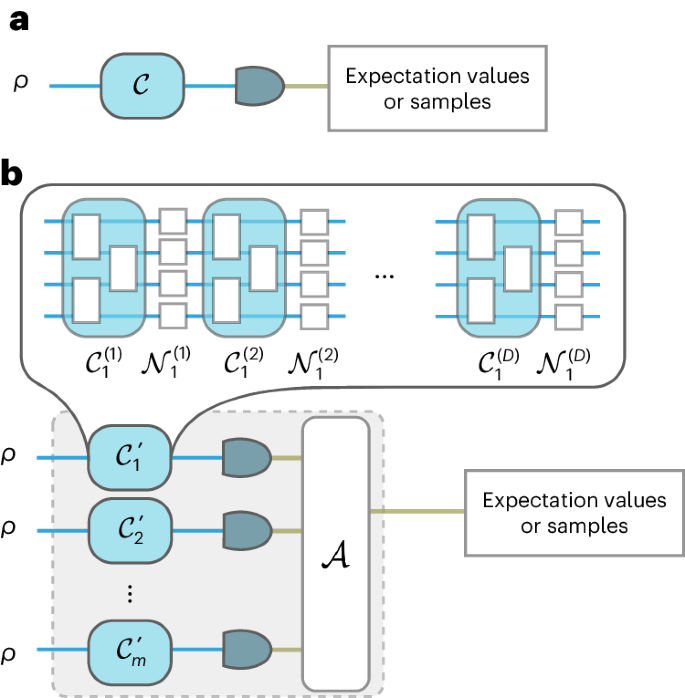Phys.org August 11, 2024
Recently quantum error mitigation has been successfully applied to reduce noise in near-term applications. However, an international team of researchers (Germany, USA – Harvard University, France) identified strong limitations to the degree to which quantum noise can be effectively ‘undone’ for larger system sizes. They developed a framework which rigorously captures large classes of error-mitigation schemes in use today. By relating error mitigation to a statistical inference problem, they showed that even at shallow circuit depths comparable to those of current experiments, a superpolynomial number of samples was needed in the worst case to estimate the expectation values of noiseless observables, the principal task of error mitigation. Their construction implied that scrambling due to noise could kick in at exponentially smaller depths than previously thought. Noise impacted other near-term applications by constraining kernel estimation in quantum machine learning, causing an earlier emergence of noise-induced barren plateaus in variational quantum algorithms and ruling out exponential quantum speed-ups in estimating expectation values in the presence of noise or preparing the ground state of a Hamiltonian… read more. Open Access TECHNICAL ARTICLE

Circuits without and with quantum noise. Credit: Nature Physics, 25 July 2024